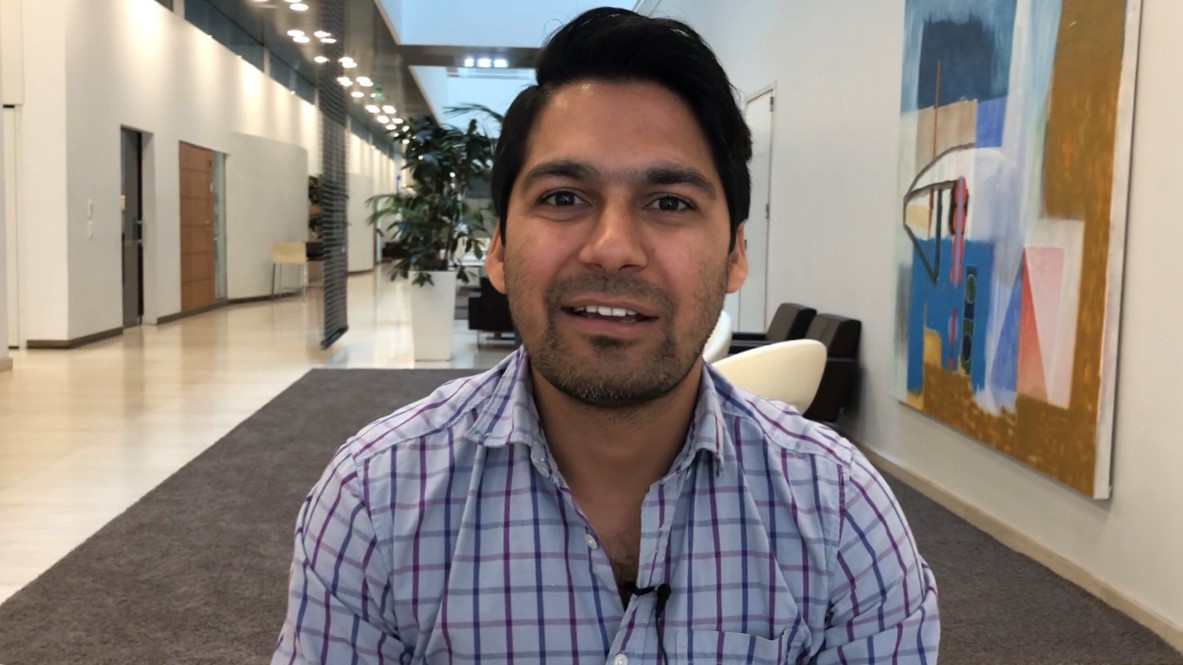Esittelemme Kuukauden tutkija -juttusarjassamme Suomen Syöpärekisterin tutkijoita ja heidän tutkimustaan. Tällä kertaa vuorossa on tutkija Deependra Singh, jota haastattelimme englanniksi.
Who are you and what do you do here in Cancer Registry?
I am Deependra Singh, a doctoral researcher at the Finnish Cancer Registry.
How did you end up in the Cancer Registry?
I started to work for the Finnish Cancer Registry in 2014. It was the idea of my supervisor Ahti Anttila who thought that it is important to analyze information on the breast symptoms, which are reported to the Mass Screening Registry, collected since the early years of mammography screening programme. That thought later developed as my PhD project. The aim was to assess the association between symptoms and risk of cancer outcomes. The cancer registry opened up the opportunity to work in this project.
What is you research theme?
My research focused on breast symptoms. The main purpose was to find out whether women with breast symptoms reported at the mammography-screening visit have differential risks of breast cancer diagnosis, breast cancer mortality and false positive results as compared to asymptomatic women. There was very little evidence on cancer risk in women who report symptoms.
What are the main results of your research and how they may affect the society?
We found that women who reported symptoms at the mammography visit had a higher risk of cancer diagnosis in the same visit. In addition, the risk was elevated after the visit and before the next invitation. This means that women with breast symptoms, especially those with a lump have greater likelihood to be diagnosed as a cancer even before they are invited in two-year time. The mortality risk is also higher in symptomatic women. On the other hand, we found that symptomatic women are more likely to have false positive mammography results than that of asymptomatic women.
In conclusion, we can say that collecting and analyzing information on breast symptoms is important. It is important to improve awareness of breast symptoms in women. Health professionals should advice to seek care prior to next invitation if women feel abnormalities in the breast. Our findings suggest the need to improve the guidelines for screening and clinical service for women with symptoms. In addition, systematic surveillance or follow-up of women who did not undergo further assessment is crucial.
What makes Cancer Registry a good place to work?
The best thing about the cancer registry is the high-quality research work where many experts from different areas work under the same roof. People are really nice and friendly here.
What are your plans for the future?
Currently, I am finalizing my PhD studies. I am defending my PhD thesis on May 31 at Tampere University. I will still work some time on breast cancer screening with a focus on socio-economic status. We are interested to find out if there is variation in cancer risk by social class. After that, I will still be interested to do research work on cancer mainly on early detection of cancer, which has been shown to be important in many types of cancer.
What else would you like to tell about yourself/your work?
I want to thank the cancer registry, the staffs and especially my mentor Ahti Anttila, for supporting me exceptionally well. I am very excited to see my first child who is a baby girl. This summer is going to be very interesting and fun.
Researcher of the Month: Deependra Singh from Syöpäjärjestöt on Vimeo.
